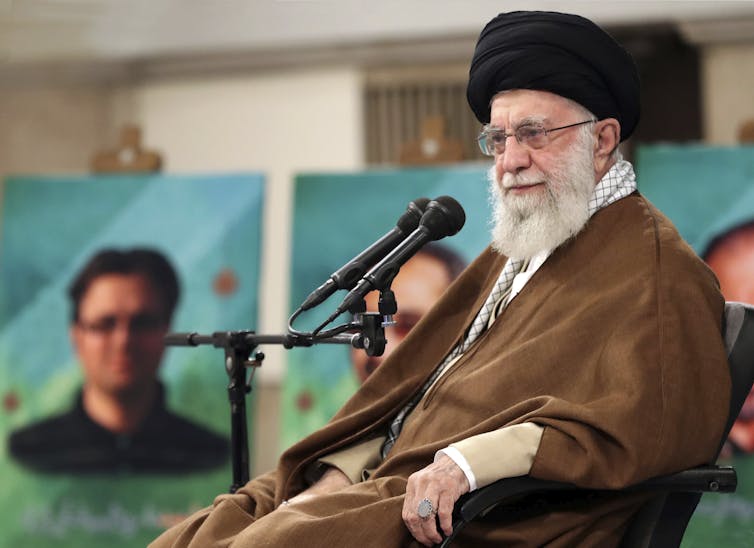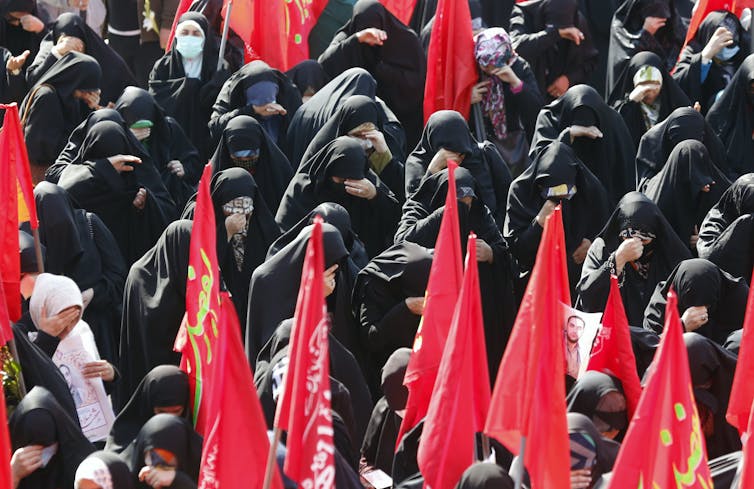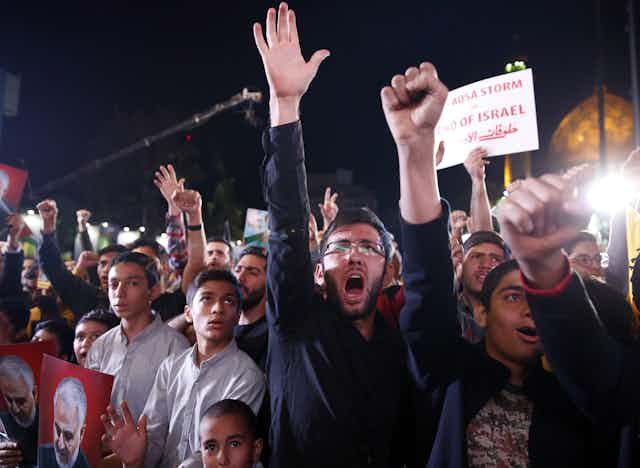Iran has warned Israel of severe consequences from “multiple fronts” if it does not halt its relentless bombardment of the Gaza Strip.
This warning is widely interpreted as a declaration of intent for Iran to enter the conflict via its allies and proxies. The Hezbollah militant group, which is already engaged in low-level skirmishes across the Israeli border with Lebanon, and the Assad regime in Syria are both closely aligned with Iran.
Given Iran’s increasingly hostile rhetoric, Washington and Tel Aviv have been deliberating over what to do if and when Tehran gives the order to engage.
Israel’s position on Iran has been uncompromising. In the past, it has advocated for surgical strikes on Iranian nuclear facilities and has been implicated in the assassination of Iranian nuclear scientists.
Iran’s potential entry into the Gaza war would open a new chapter in hostilities between the enemies – and take the war directly to Iran’s doorstep.
Military and political repercussions
Despite its warnings to Israel, Iran appears reluctant to take the route of directly entering the conflict for fear of risking a harsh Israeli response.
As a result, Iran has been maintaining a difficult balance between its ideological rhetoric and political expediency. But Iran is playing with fire. The balance it seeks to maintain can be easily disrupted in the unpredictable fog of war.
Tehran’s official line is extreme. It denies Israel the right to exist, and refers to it not as a state, but as a Zionist entity. Iranian official declarations are replete with anti-Israel tirades.
In June, Tehran unveiled its latest missile and boasted that it had the range to reach Israel. Banners announcing the missile had the words “400 seconds to Tel Aviv” printed in Persian, Hebrew and Arabic.
This message is integral to the ideology of the ruling regime and a rallying cry for its supporters.
Anti-Israel and anti-US venom is a staple of political discourse for the hardline faction that governs Iran under Supreme Leader Ali Khamenei and President Ebrahim Raisi. This faction is bolstered by its control of the judiciary, the parliament and the Islamic Revolutionary Guards Corps.
In fact, there are now calls from the hardline camp to follow through with the promise of destroying Israel. The editor-in-chief of Kayhan Daily, known as the mouthpiece of Khamenei, has called for an official declaration of war against Israel.
Read more: The Israel-Hamas war: No matter who loses, Iran wins
However, the authorities do not have a death wish. They are fully aware that open confrontation with Israel – or even a confrontation by one of Iran’s proxies – could be very costly for Iran. Not only could there be an Israeli military retaliation on Iranian facilities, but also political repercussions for a regime increasingly unpopular with its own citizens.
The Iranian public is disillusioned with the regime’s ideological zeal against Israel and sees it as a ploy to hide corruption, economic woes and the inability of the government to provide for its citizens.
The chant often heard at protests over the past decade – “Neither Gaza nor Lebanon, I sacrifice my life for Iran” – is a vivid reminder of the gap between the ruling regime and the population.
Widespread protests across Iran following the killing of Mahsa (Zhina) Amini have shown the depth of regime’s unpopularity in the past year. Given this, a military confrontation with Israel could have unpredictable political consequences for the regime.

A hostage of its own rhetoric
The ruling regime in Iran has been mindful of US and Israeli red lines to avoid open hostilities.
After the US assassination of celebrated war hero Qassem Soleimani in January 2020, for example, Iranian authorities were enraged and promised “harsh retaliation”. But the response was relatively meek: a pre-warned strike on two Iraqi airfields that housed US troops.
Iran has also followed the same approach in relation to Israel. The survival of Bashar al-Assad’s regime in Syria with Russian and Iranian backing ensured Iran has the capacity to launch attacks on Israel, but it has deliberately refrained from doing so.
This is despite the fact Israel has repeatedly targeted Iranian assets in Syria. In 2018, for example, Israel carried out air sorties in Syria that hit 70 Iranian targets.
In 2020, a similar operation was carried out by Israel to attack Iranian military targets in Syria. And again this year, before the Gaza War, Israel launched air strikes against Iranian forces in Syria. Iran’s response to these acts has been mute.

Iran is a hostage of its own inflammatory rhetoric. The regime has made its political fortune on rejecting the West and Israel. The Palestinian cause has been trumpeted as central to its worldview.
This posture has attracted a following in the Muslim world. And Iran shamelessly exploits this to gain advantage over its Arab rivals, whom Tehran accuses of betraying Palestinians and their plight.
Yet, the Iranian leadership is fully aware that crossing red lines and engaging in open confrontation with Israel (or the US) could pose an existential threat to the regime. That is why Iran has consistently pulled back from the brink of war and opted for low-intensity skirmishes via its proxies that serve its ideological grandstanding but do not jeopardise its survival.
Whether Iran can continue this game of brinksmanship in such a tense and explosive environment is an open question. Iran may not order Hezbollah to unleash its missiles on Israel, but this doesn’t mean it couldn’t happen by accident, through a chain of errors, or even by design.
Just because Iran has trained and sponsored Hezbollah, we cannot automatically assume Tehran has full control over all of its levers.


